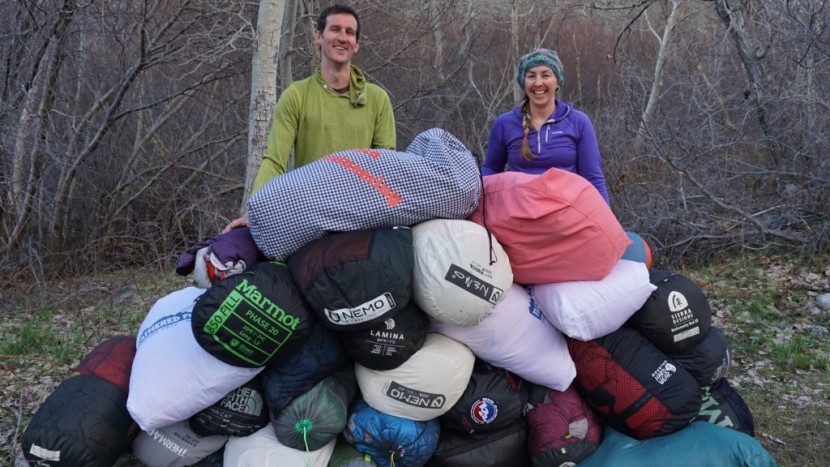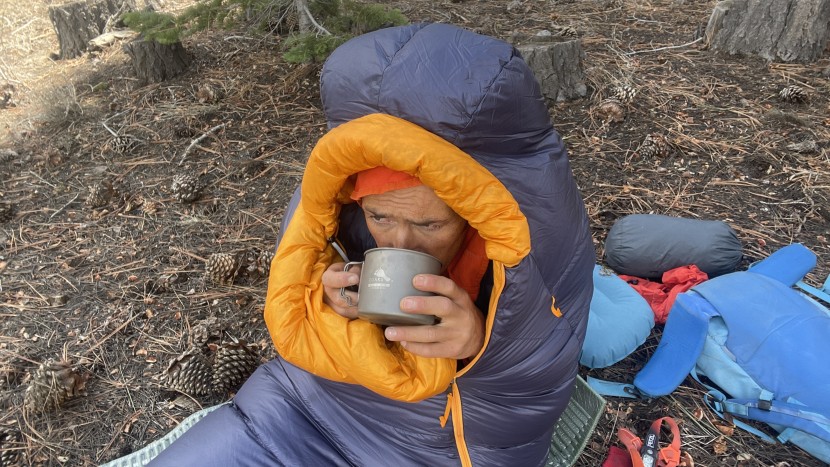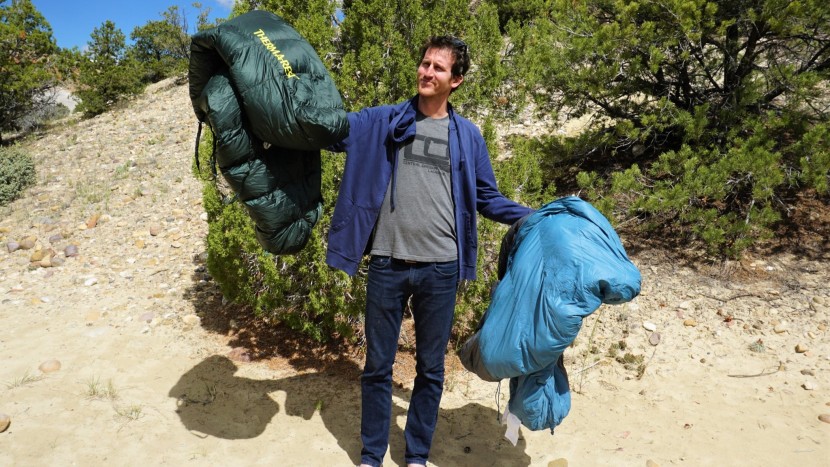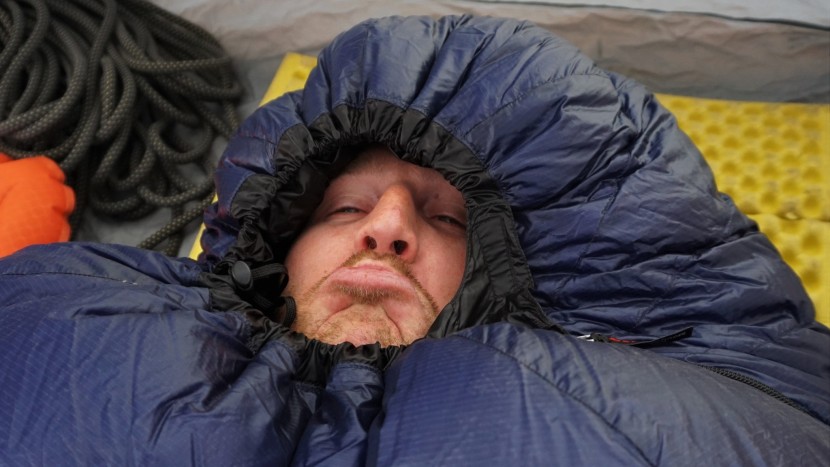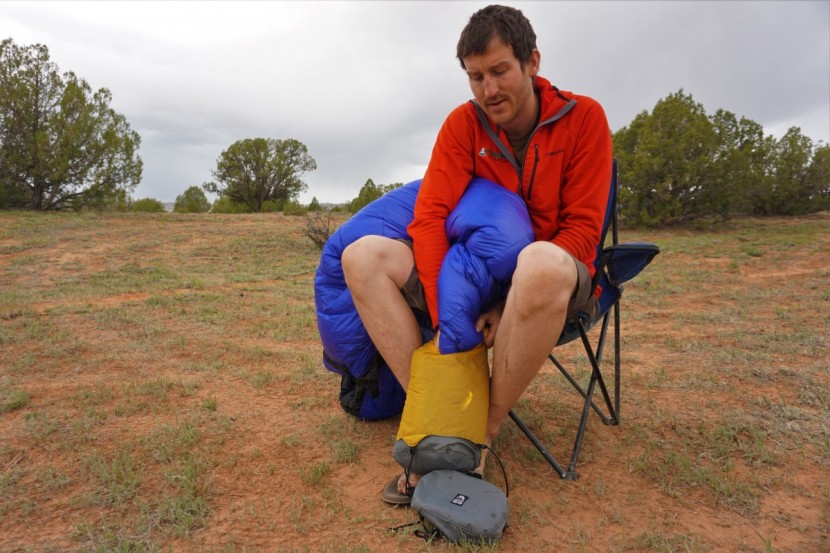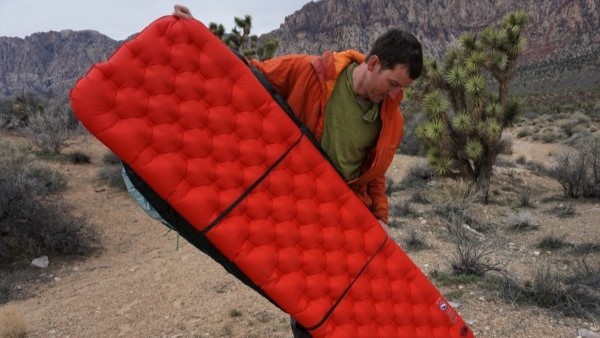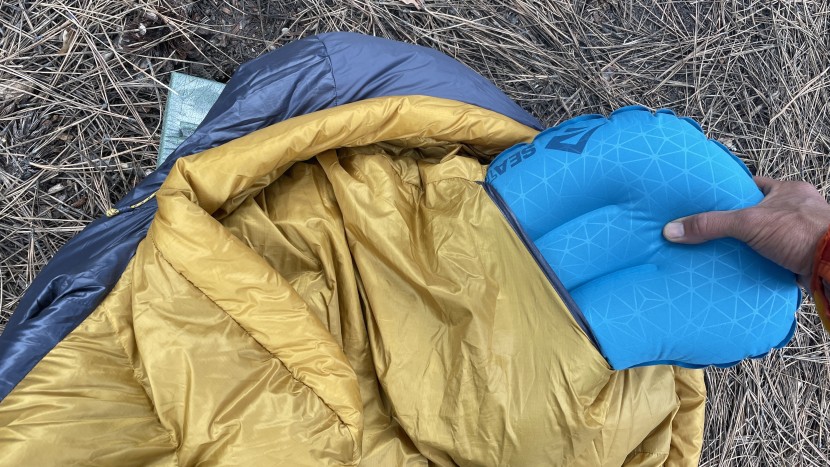Over the lifetime of our backpacking sleeping bag review, the team at GearLab has tested hundreds of different backpacking-specific bags hands-on. All the expertise gleaned from that considerable experience is directed into this review. Bags were loaned out to certified mountain guides, Appalachian and Pacific Crest Trail veterans, Yosemite Search and Rescue personnel, and novice backpackers to gather a wide variety of perspectives and feedback. Their opinions were instrumental in the development of our performance criteria. The standards by which we evaluated these criteria are discussed below.
Warmth
If sleeping bag warmth were easy to measure, then we wouldn't need the rigorous protocol and copper mannequin of the European Norm (EN) or ISO temperature ratings. However, even casual use of a few bags with identical EN/ISO ratings reveals that there is a lot more to your perceived warmth than the number on the side of a sleeping bag.
To add the human element to our warmth ratings, we first considered testing warmth while we were actually out backpacking, but the additional variables of the backcountry setting can complicate things. Basic stuff like fluctuating air temperatures and wind speed can have big effects. Subtle things, such as tent design, sleeping pad quality, underlying sleeping surface, and the number of tent buddies, also play an undeniable role.
We tested warmth in the “lab” and the field to reduce these issues. Each night for three months, we turned the thermostat to 48°F and slept in a bag at home. Bags were selected randomly and switched each night so that all had been used at least three nights by the end. Finally, we reviewed our meticulous notes and identified noticeable differences in warmth between bags with similar EN ratings.
Weight
Measuring weight is pretty straightforward. We weighed each bag on a digital scale to evaluate this performance criterion. Any included stuff or compression sacks were weighed separately. The weight of these sacks is noted in our comparison table, but the final weight score is based solely on the bag's weight. We did this because we assume many users will buy a third-party compression sack to pack their sleeping bag down to be as small as possible.
Comfort
Comfort may be the most subjective aspect of sleeping bag performance. Interior dimensions can be accurately measured, but the fabric's softness or the hood's fit are harder to quantify and no less important. To make it fair, we specifically recruited a diverse group of testers who sleep on their backs, sides, or stomachs. The reported score is an average of independent scores by at least three testers.
Packability
All the sleeping bags we tested come with some sort of stuff or compression sack to store them in when backpacking. However, the effectiveness of these sacks in compressing their respective sleeping bags can vary greatly. Therefore, we compressed each bag into the same Granite Gear 11-liter compression sack to measure packed size. The minimum compressed volume was then recorded and used to determine a score.
Features
Features serve as a catch-all for the remaining aspects of sleeping bag performance. Points were given for useful features, such as convenient stash pockets or effective anti-snag zippers. We also examined manufacturer advertising material to identify the overarching intended purpose of a bag. We then scored each bag based on how well its design achieved this overall purpose.

